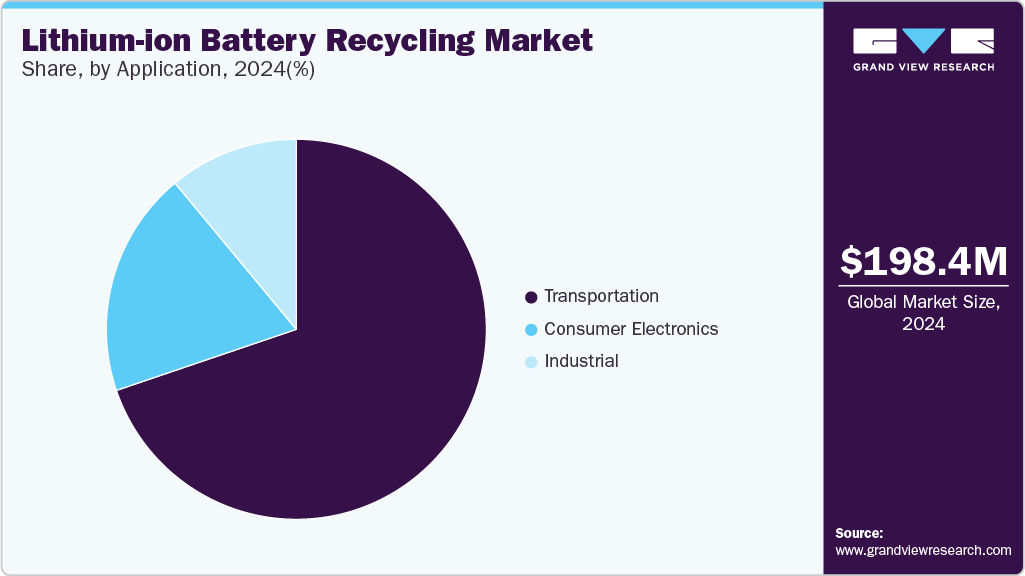Lithium-ion Battery Recycling Market Expands with Strategic Global Partnerships
The global lithium-ion battery recycling market is set for remarkable growth, supported by rising EV adoption, government-backed sustainability initiatives, and technological innovation.
The global lithium-ion battery recycling market size was estimated at USD 198.37 million in 2024 and is projected to reach USD 1,830 million by 2030, growing at a CAGR of 44.8% from 2025 to 2030. Market expansion is fueled by the surging adoption of electric vehicles (EVs) and the widespread use of consumer electronics.
According to the International Energy Agency (IEA), electric car sales surpassed 2.3 million, marking a 25% increase from the previous year. Projections indicated that 14 million electric cars would be sold by the end of 2023, representing a 35% annual increase driven by heightened purchases in the second half of the year.

The recycling market is expanding due to rising battery waste volumes, supportive government incentives, and increasing environmental awareness among consumers. For instance, in February 2022, Glencore and Britishvolt announced a joint venture to establish a battery recycling ecosystem in the UK. The growing emphasis on a circular economy presents opportunities for innovation and sustainable solutions, though challenges such as high capital expenditure and regulatory complexities remain. Increasing competition among players further drives creativity, collaboration, and technological advancements.
Key Market Highlights:
- Asia Pacific dominated the global lithium-ion battery recycling market with the largest revenue share in 2024.
- Within Asia Pacific, China held the largest revenue share in 2024.
- By application, the transportation segment led the market with a share of 69.79% in 2024.
Download a free sample PDF of the Lithium-ion Battery Recycling Market Intelligence Study from Grand View Research.
Market Performance:
- 2024 Market Size: USD 198.37 Million
- 2030 Projected Market Size: USD 1,830 Million
- CAGR (2025–2030): 44.8%
- Asia Pacific: Largest market in 2024
Prominent Companies & Market Dynamics:
The lithium-ion battery recycling market is characterized by strong competition, with companies focusing on sustainable innovation and advanced recycling technologies.
- Contemporary Amperex Technology Co., Limited (CATL): A leader in battery innovation, CATL has pioneered cobalt-free Lithium Ferro Phosphate (LFP) batteries, which enhance safety and sustainability.
- LG Energy Solution: Designs and manufactures lithium-ion batteries for EVs, IT devices, energy storage systems, and mobility applications, contributing to a cleaner energy future.
Key Companies:
- Tesla
- Shenzhen Manly Battery Co.
- TOSHIBA CORPORATION
- SK on Co., Ltd
- CALB
- Gotion, Inc.
- Sunwoda Electronic Co., Ltd
- Li-Cycle Corp.
- Helbiz
Explore Horizon Databook – the world’s most comprehensive market intelligence platform by Grand View Research.
Conclusion
The global lithium-ion battery recycling market is set for remarkable growth, supported by rising EV adoption, government-backed sustainability initiatives, and technological innovation. With Asia Pacific leading the way, particularly China, and growing participation from global leaders, the sector is poised to play a pivotal role in advancing the circular economy and ensuring the sustainable use of critical battery materials.